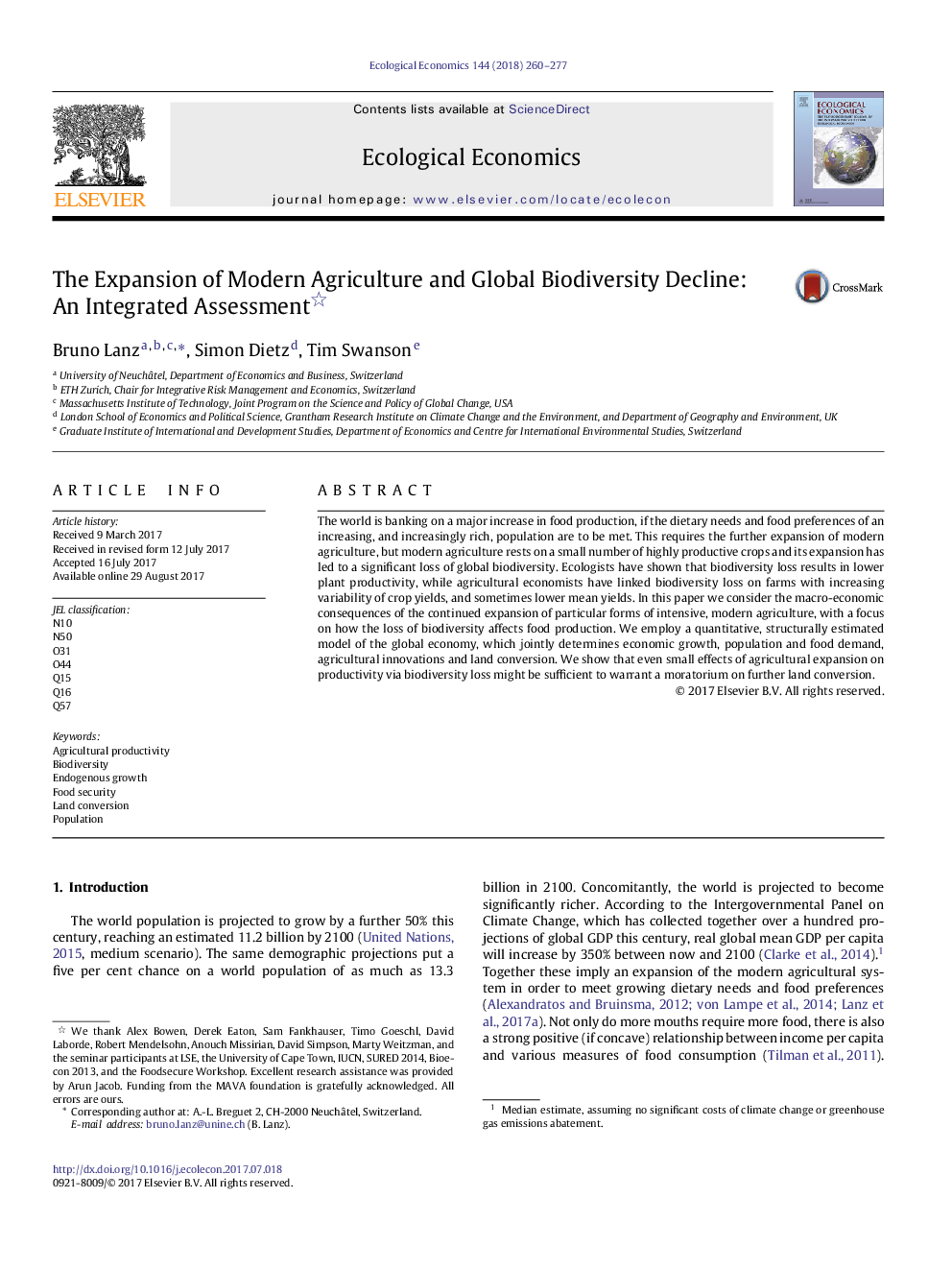ترجمه فارسی عنوان مقاله
گسترش کشاورزی مدرن و کاهش جهانی تنوع زیستی: ارزیابی یکپارچه
عنوان انگلیسی
The Expansion of Modern Agriculture and Global Biodiversity Decline: An Integrated Assessment
| کد مقاله | سال انتشار | تعداد صفحات مقاله انگلیسی |
|---|---|---|
| 98770 | 2018 | 18 صفحه PDF |
منبع

Publisher : Elsevier - Science Direct (الزویر - ساینس دایرکت)
Journal : Ecological Economics, Volume 144, February 2018, Pages 260-277
ترجمه چکیده
جهان در صورتی که نیازهای رژیم غذایی و تنظیم غذا از یک جمعیت رو به رشد و به طور فزاینده ای غنی، تامین شود، در معرض افزایش قابل توجهی در تولید مواد غذایی قرار می گیرد. این امر نیاز به گسترش بیشتر کشاورزی مدرن دارد، اما کشاورزی مدرن بر تعداد کمی از محصولات بسیار تولیدی تأثیر می گذارد و گسترش آن منجر به کاهش چشمگیر تنوع زیستی جهانی شده است. اکولوژیست ها نشان داده اند که از دست رفتن تنوع زیستی منجر به کاهش بهره وری گیاهان می شود، در حالی که اقتصاددانان کشاورزی با کاهش تنوع زیستی در مزارع ارتباطات زیست محیطی را کاهش می دهند و گاهی اوقات تولیدات متوسط نیز کاهش می یابد. در این مقاله، ما عواقب کلان اقتصادی از ادامه گسترش انواع خاص کشاورزی مدرن و مدرن را با توجه به اینکه چگونه از دست دادن تنوع زیستی در تولید مواد غذایی تاثیر می گذاریم، در نظر می گیریم. ما با استفاده از یک مدل تخمین زده شده از نظر ساختاری، اقتصاد جهانی، که به طور مشترک رشد اقتصادی، جمعیت و تقاضای مواد غذایی، نوآوری های کشاورزی و تبدیل زمین را تعیین می کند. ما نشان می دهیم که حتی اثرات کوچکی از گسترش کشاورزی به بهره وری از طریق از دست رفتن تنوع زیستی ممکن است برای تأیید مهلت قانونی برای تبدیل زمین بیشتر باشد.

